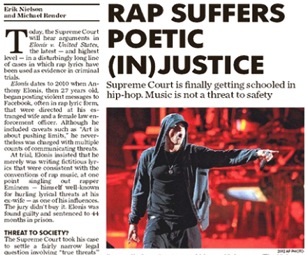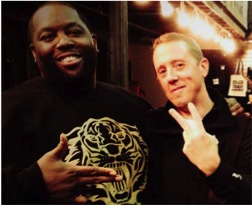I have served, or am currently serving, as an expert witness in five cases involving rap lyrics as evidence, and I have probably consulted on twenty others. In this op-ed for The Washington Post, I draw on that experience, as well as my research, to consider the impact that Elonis v. U.S. could have on aspiring rappers, especially those who rely on social media to disseminate their work.
As I argue here, police are spending a surprising amount of time monitoring sites like YouTube and Facebook, often finding rap lyrics or videos that they (mis)interpret as evidence of a crime. The results can be disastrous for young artists who are in many cases using this music to escape a life of crime, not perpetuate one.



